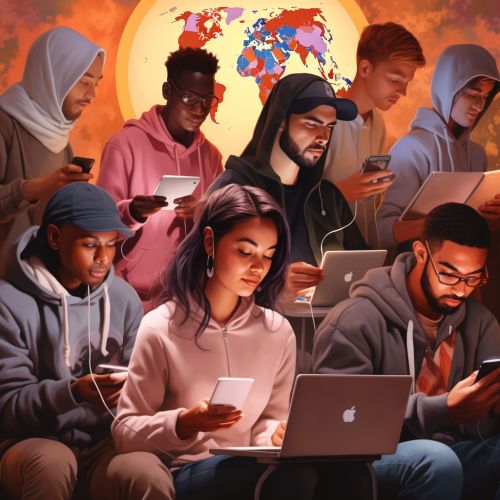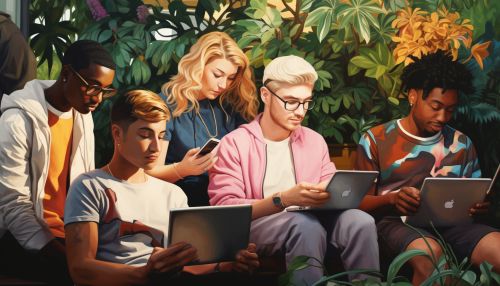Internet Culture
Introduction
The term Internet culture or cyberculture, is the culture that has emerged, or is emerging, from the use of computer networks for communication, entertainment, and business. It is also the study of various social phenomena associated with the Internet and other new forms of the network communication, such as online communities, online multi-player gaming, social gaming, social media, and texting.


History and Evolution
The history of the Internet dates back significantly further than that of the World Wide Web. The concept of data communication – transmitting data between two different places through an electromagnetic medium such as radio or an electric wire – pre-dates the introduction of the first computers. Such communication systems were typically limited to point to point communication between two end devices. However, the development of the Advanced Research Projects Agency Network (ARPANET) in the 1960s, and its subsequent evolution into the Internet, brought about a revolution in communication, leading to the emergence of Internet culture.
Components of Internet Culture
Memes
A key component of Internet culture is the creation and circulation of Internet memes. These are ideas, behaviors, or styles that spread from person to person within a culture, often with the aim of conveying a particular phenomenon, theme, or meaning represented by the meme. Internet memes are a form of digital folklore, and their rapid proliferation and evolution can be attributed to the speed and ease of communication on the Internet.
Social Media
Social media platforms have had a profound impact on the development and spread of Internet culture. Sites such as Facebook, Twitter, Instagram, and YouTube have become platforms for communication, self-expression, and community building. They have also been instrumental in the spread of Internet memes, viral videos, and other elements of Internet culture.
Online Communities
Online communities are groups of people who interact over the Internet. These communities can take many forms, including forums, chat rooms, social networking sites, and online gaming communities. They are often formed around shared interests or activities, and can foster a strong sense of community and identity among their members.
Internet Slang
Internet slang refers to a variety of slang languages used by different communities on the Internet. It is a type of language that is created, disseminated, and evolved by Internet users. Examples include "LOL" (laugh out loud), "BRB" (be right back), and "OMG" (oh my god).
Impact of Internet Culture
Internet culture has had a profound impact on society, influencing everything from popular culture to politics to business. It has given rise to new forms of communication, self-expression, and community building, and has changed the way we interact with the world around us.
Impact on Popular Culture
Internet culture has had a significant impact on popular culture, influencing music, television, film, and literature. Internet memes, viral videos, and other elements of Internet culture have become a common part of the cultural landscape, and have been incorporated into a variety of media.
Impact on Politics
The Internet has also had a significant impact on politics, with social media platforms becoming a key tool for political communication and campaigning. Politicians and political movements have used the Internet to reach out to supporters, spread their message, and mobilize voters.
Impact on Business
Businesses have also been significantly impacted by Internet culture. The rise of social media has changed the way businesses communicate with their customers, and has given rise to new forms of marketing and advertising.
Criticisms and Controversies
While Internet culture has had many positive impacts, it has also been the subject of criticism and controversy. Issues such as cyberbullying, online harassment, and the spread of misinformation and fake news have all been associated with Internet culture.
Conclusion
Internet culture is a complex and ever-evolving phenomenon, shaped by the interactions of millions of people across the globe. It has had a profound impact on society, influencing everything from popular culture to politics to business. As the Internet continues to evolve, so too will the culture that it fosters.
